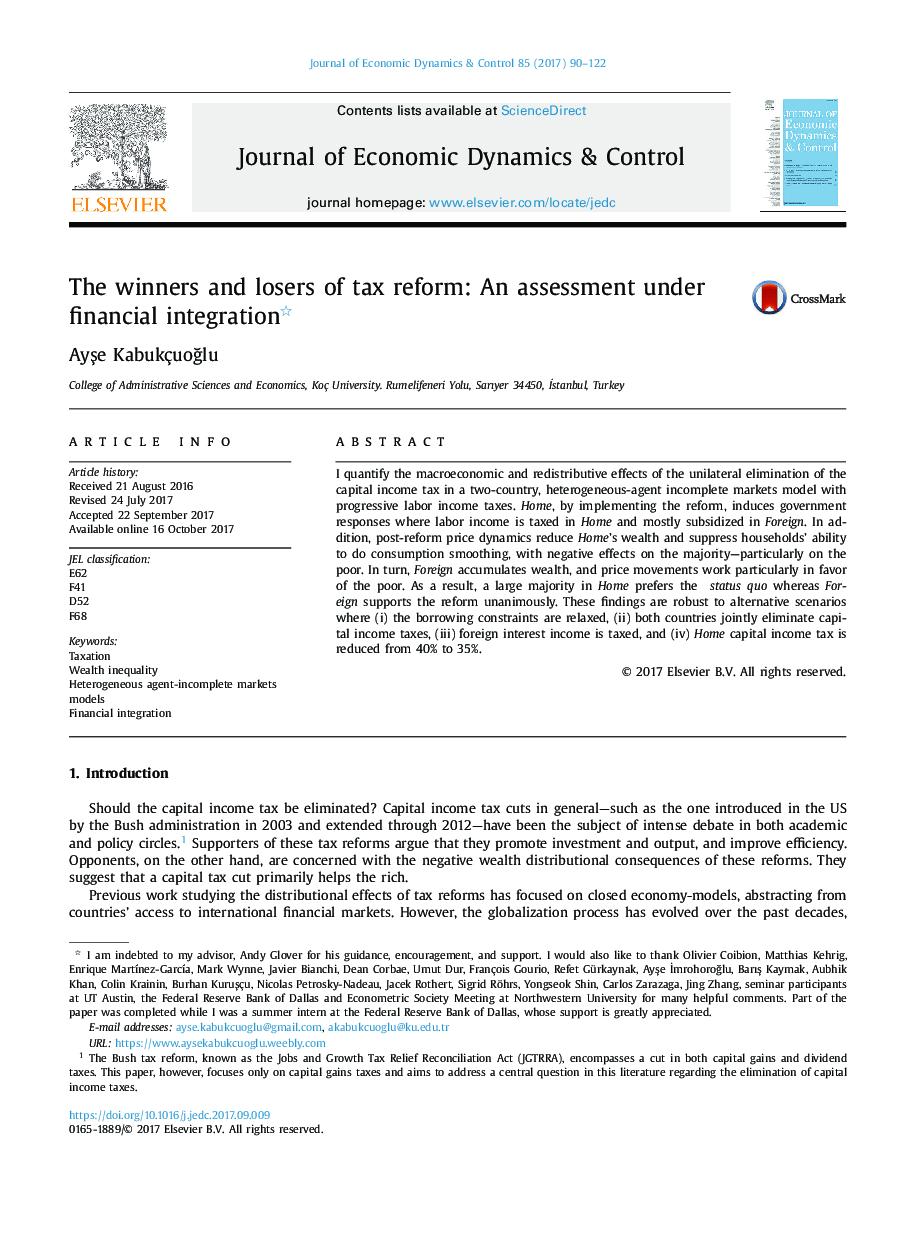| Article ID | Journal | Published Year | Pages | File Type |
|---|---|---|---|---|
| 7358950 | Journal of Economic Dynamics and Control | 2017 | 33 Pages |
Abstract
I quantify the macroeconomic and redistributive effects of the unilateral elimination of the capital income tax in a two-country, heterogeneous-agent incomplete markets model with progressive labor income taxes. Home, by implementing the reform, induces government responses where labor income is taxed in Home and mostly subsidized in Foreign. In addition, post-reform price dynamics reduce Home's wealth and suppress households' ability to do consumption smoothing, with negative effects on the majority-particularly on the poor. In turn, Foreign
accumulates wealth, and price movements work particularly in favor of the poor. As a result, a large majority in Home prefers the
status quo whereas Foreign supports the reform unanimously. These findings are robust to alternative scenarios where (i) the borrowing constraints are relaxed, (ii) both countries jointly eliminate capital income taxes, (iii) foreign interest income is taxed, and (iv) Home capital income tax is reduced from 40% to 35%.
Related Topics
Physical Sciences and Engineering
Mathematics
Control and Optimization
Authors
AyÅe KabukçuoÄlu,
